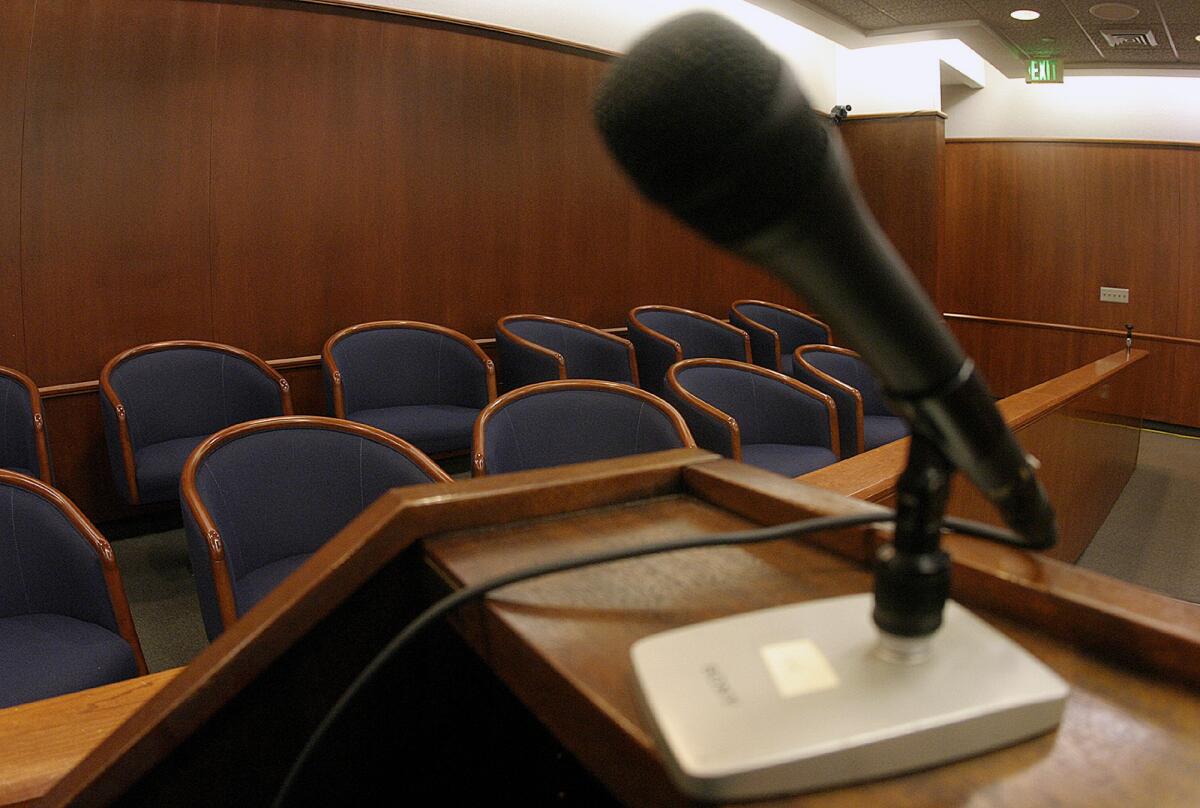Opinion: Real justice requires unanimous juries for criminal convictions

In 1983, a jury convicted Archie Williams for the 1982 rape and stabbing of a woman in her home in Baton Rouge, La. No physical evidence tied Williams to the crime, but 11 of the jurors were persuaded that Williams was the assailant based on the victimâs testimony. A lone juror disagreed.
At the time, the 11-1 vote would have resulted in a hung jury in 48 states â Louisiana and Oregon being the only exceptions â and Williams would have been entitled to a retrial. Louisianaâs law, however, permitted non-unanimous jury convictions in any case where prosecutors were not seeking the death penalty. Williams was eventually exonerated and released in 2019, after fingerprints found at the crime scene decades earlier were matched to another person, a convicted serial rapist.
Last year, Louisianaâs voters abolished the non-unanimous jury practice after a spirited campaign about the systemâs grievous failures. But the changed law applies only to felonies committed starting this year. It doesnât help the hundreds of people in prison who were convicted by non-unanimous juries prior to Jan. 1, 2019.
Today, the Supreme Court will consider a challenge to the constitutionality of the old law in the case of Evangelisto Ramos, who was convicted of a 2014 murder. Only 10 of 12 jurors voted to convict Ramos, the minimum needed for a conviction in Louisiana. A judge sentenced him to life in prison without possibility of parole.
The Louisiana statute that permitted the non-unanimous jury convictions has an appalling history, as does Oregonâs similar statute.
After the Civil War, African Americans started to serve on juries in significant numbers for the first time. But the backlash that followed Reconstruction essentially dismantled all rights guaranteed by the 13th, 14th and 15th Amendments to the Constitution.
In 1895, a white Louisiana judge alleged that when African Americans were included on juries, âthere was no possibility of just verdicts.â Three years later, the state held a Constitutional convention whose stated purpose, according to a Democratic Party advertisement, was to eliminate âthe vast mass of ignorant, illiterate and venal Negroes from the privileges of the elective franchise.â The new state Constitution imposed restrictions on voting, created a poll tax and eliminated Louisianaâs long-standing jury-unanimity requirement and permitted convictions for any non-capital felony with just 9 of 12 jurors. Louisiana amended the law in 1973, requiring a 10-2 vote for conviction.
Oregon enacted its non-unanimous jury law in 1934. It was passed after a media storm developed over the failure of a jury to convict a Jewish man named Jacob Silverman for murder; the jury found him guilty of manslaughter. The media coverage included an editorial in the Morning Oregonian that proclaimed âthe vast immigration into America from southern and eastern Europe, of people untrained in the jury systemâ had the made âthe jury of twelve increasingly unwieldly and unsatisfactory.ââ
In 1972, a deeply divided Supreme Court upheld these laws in Apodaca vs. Oregon. The court ruled that even though unanimous juries were required in federal criminal trials under the 6th Amendment, the Constitution did not impose that requirement on state trials. Since 1972, civil rights organizations have tried to persuade the Supreme Court to overturn the laws in Louisiana and Oregon but have failed.
Todayâs argument could well produce a new result. Prominent legal scholars, including Eugene Volokh, a constitutional law professor at UCLA, say that recent Supreme Court decisions applying the Bill of Rights to the states have increased the likelihood that the court will reverse field. Volokh predicted that the court will rule that the 6th Amendmentâs guarantee of an impartial jury must also apply to the states because of the 14th Amendmentâs guarantee of due process of law.
While the Constitution does not specifically mention unanimous verdicts in criminal cases, they have been a common requirement in Anglo American jurisprudence for hundreds of years. Itâs long past time for the Supreme Court to correct this anomaly in the criminal justice system.
Henry Weinstein is a professor at UC Irvine School of Law. He was a Los Angeles Times staff writer from 1978 to 2008.
More to Read
A cure for the common opinion
Get thought-provoking perspectives with our weekly newsletter.
You may occasionally receive promotional content from the Los Angeles Times.










